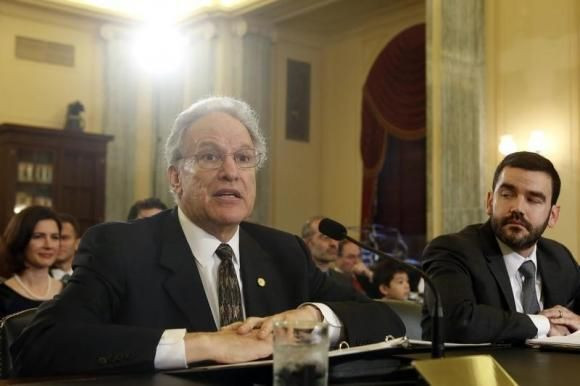US Recalls May Climb This Year, Says Car Safety Chief

(Reuters) - A recent wave of auto recalls may lead to even more flaws being discovered this year as drivers become alert to design faults, the top U.S. car safety official said on Tuesday.
Recalls of air bags and ignition switches last year contributed to an increase in the number of consumers with car safety concerns, said Mark Rosekind, head of the National Highway Traffic Safety Administration.
While the auto safety agency may get about 45,000 consumer complaints a year, Rosekind estimated there were about 75,000 in 2014.
"I would expect that we will actually see an increase in recalls" this year, Rosekind told a group of reporters in his first media interview since taking over the agency in mid-December. "This is one of those cases where more recalls could actually mean the system is working better."
NHTSA has been accused of acting too slowly to prevent dangers involving Takata Corp air bags and General Motors Co ignition switches, and Rosekind said he must turn the agency around - fast.
"I got a couple years, max," said Rosekind, who was appointed by President Barack Obama whose term ends in January 2017. "The defect recall system - we just got to address that."
Rosekind, a former academic and specialist on managing fatigue, spent the past four years as a member of the National Transportation Safety Board, which investigates major transportation accidents.
The agency he now leads has come under fire for its years-long, halting response to concerns that defective Takata air bags were rupturing upon deployment and spraying metal shards into cars - a flaw linked to at least five deaths.
Takata has resisted a national recall, though Honda Motor Co Ltd, Toyota Motor Corp and other carmakers have gone ahead with them. The agency has expressed dissatisfaction with Takata's response on the issue so far.
Rosekind declined to say what steps he may take to push for a more comprehensive Takata recall.
The administrator did say carmakers bear the greatest burden for detecting defects and that he will not tolerate industry hiding what it knows about car design dangers.
"They are the ones that are required to provide information," Rosekind said. He singled out General Motors for criticism of its handling of a flaw in the design of millions of ignition switches which can inadvertently turn off the engine and deactivate air bags while the vehicle is still moving.
That flaw has been blamed for at least 42 deaths.
"I am going to be looking for all the tools that are available to the agency to make sure stuff gets done," he said.
One must-do, he said, is raise the $35 million limit on civil penalties for carmakers that botch or slow-walk recalls.
"It has to at least go to $300 (million)," he said, suggesting that the cap could be eliminated entirely.
© Copyright IBTimes 2024. All rights reserved.




















